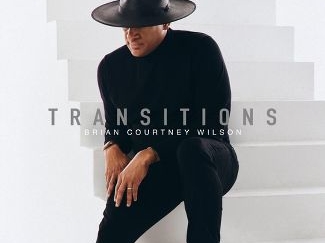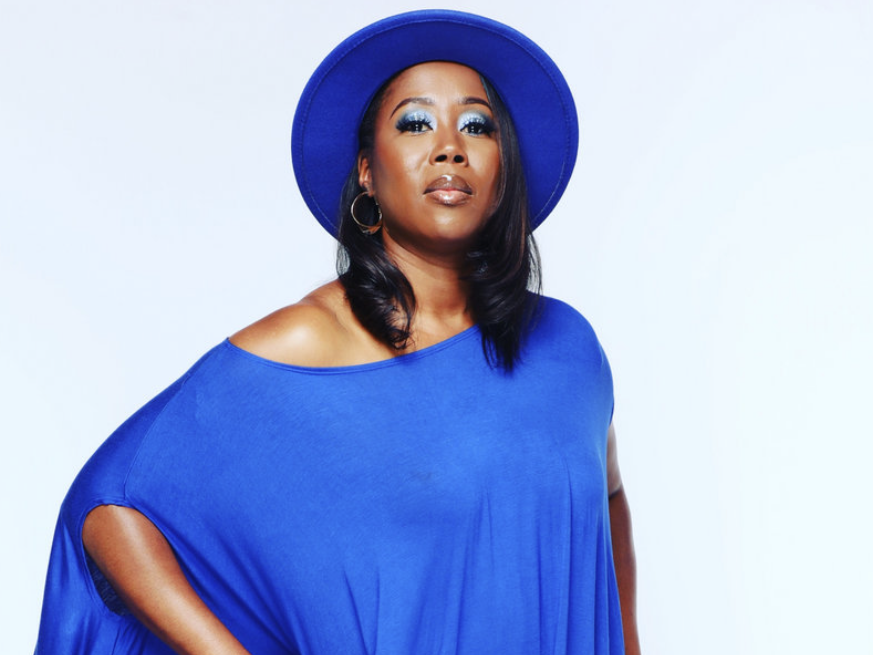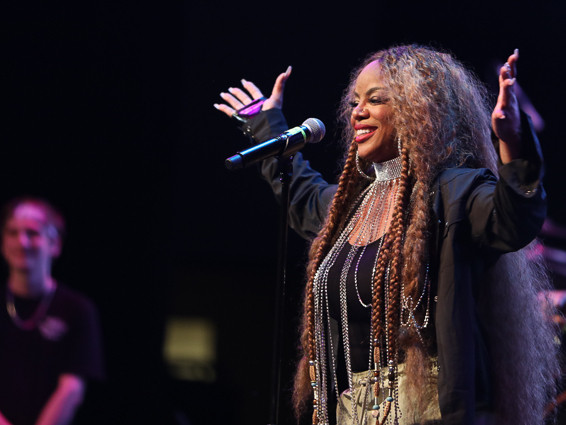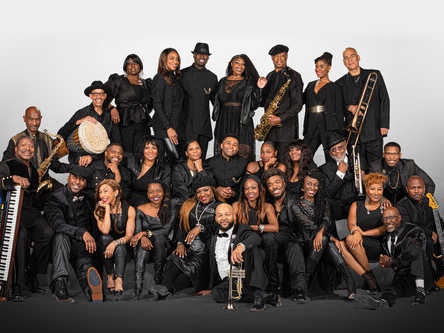Not long after his (TV One) Unsung episode at the end of July, Grown Folks Music caught up with Montell Jordan. We talked about why he felt it was time to share his story, the music business, skepticism now that he’s in ministry, healing marriages and how he’s continuing to do music– under a new covering (the covering of God, and the upcoming album is called Covered) at Victory World Church as the worship pastor. Read and enjoy.
GFM: Your Unsung episode kicked off the current season. Why did you feel the time was right to share your story in such detail and with such transparency?
MJ: They reached out to me… the producers of Unsung. A young woman name Sade (Oyinade)… she produced that episode. They were interested in… I guess kicking around the topic and one day “This Is How We Do It” came on the radio in the office and they were like, ‘Well where is he?’ They thought I would be an interesting topic to cover and they reached out to me. Really I had kinda been flying under the radar in ministry for the past four years and had no desire really to tell the story, but the way it was positioned was a lot of the stories that they show on Unsung maybe end more tragically. They were hoping that… seeing I was doing ministry… to see a story that had a little more redemptive value to it. So when they came and asked if I would be a part of it, I went to my family and my wife and said, what do you guys think? Should we tell the story? My family overwhelmingly felt like we were healed enough and in a place to be able to be vulnerable and transparent with people.
GFM: A lot was shared about your personal life on the episode, but musically do you feel unsung? Do you feel that you were unsung when it came to your talent and what you did or did not get to do with your R&B career?
MJ: I feel like there are great successes that I had in my R&B career and in pop music. At the same breath, I feel like there were places that I never reached as far as what I thought in my mind success would entail. So because of that, I always strived to be greater and to be more famous and to do things in that business just simply because I felt like there was a level that I never reached. I looked at other artists and I envied them. There were certain places that I thought well why is this guy getting this attention? Why is he getting the album cover here? Why is he getting the magazine cover here? Why are they talking about this guy as opposed to my story? One of the things I understood is that I don’t believe God designed us to carry fame. He wants to be famous and he can make our names great. But I think when we try to make ourselves famous, we basically try to create ourselves into this version of God. I think he allowed me to see success and see fame, but not allow it to consume me. So never fully reaching my potential as this superstar, big, artist that I thought in my mind was what I wanted would probably have rendered me unusable for ministry later down the road. I feel if I am unsung, it’s for a good reason, because I needed to be able to be used for ministry in today’s… in the season I’m in now.
GFM: You used the word consume. Consumption is good word because part of what I took from your story is that an artist gets signed for who they are, but then the label determines who they want you to be, what they want you to sound like and you seemed to be caught up in this machine that almost consumed you. Do you think that it’s possible for an artist to be himself, both morally and artistically, in the entertainment business without being consumed?
MJ: I think whatever you give your whole heart to is what consumes you. And let me just put this disclaimer because I think through Unsung, a lot of people can look and be able to say, ‘see that’s the record business’. Or, ‘that’s labels’. Or, ‘that’s what they do to you’. But understand the label is just a conduit, or the label is just an avenue or the opportunity to shed a light on who we are, or the parts of us that we’re willing to compromise. It wasn’t just the label that said, ‘You’re going to do this.’ It was me being willing to compromise and say you know what that’s a good idea and you guys own a label so I understand that. For example, I can go to somebody who’s a hungry artist today, or anybody can, and they can say, ‘Hey, I know you’ve been striving to get on… to get into the music business. Here’s what I need you to do: just change your name because this is a cooler name– and people change their name all the time. I’m gonna give you a $100,000 to go in and start recording an album. I’m gonna take a percentage. I’m gonna get 70 percent of what comes back in until I get my money back and then I’ll drop that down to 60 percent, but you know I’m gonna fund this for you and you’re gonna be famous. Your music is gonna get out into the whole world.’ There’s not many people that wouldn’t take that deal. Because they’re getting a hundred thousand dollars. They’re willing to change their name. They’re willing to give up 75 percent of everything. Because the way it’s posed is, I’m going to help you be famous. So really, it’s what you’re willing to compromise to be famous. And it’s not just labels that do it, but people ask us on our job everyday, ‘What are you willing to compromise to be famous or to be popular?’ In your friendships… what are you willing to compromise for people to like you?
You asked me about being consumed. I think I can be consumed in ministry. I think we can be consumed on our job or we can be consumed with the internet– anything that has our heart and vies for our affections is what ultimately consumes us. To answer the question can someone actually do both? Can they keep their integrity and be who they are and still be famous or still create music or do what they do? I think if they find their identity in Christ over their identity in what they do, yeah, I think it is possible. Do I think most people can or are doing it? I think not.
GFM: If you had been in this new platform that seems to be emerging for artists– the MySpace and the YouTube and social media– where people are just kinda creating their music and putting it out for themselves and it’s kinda authentically what they wanna write… what they want to sing about. I remembering watching (Unsung) and you talking about the songwriting, you giving songs away and giving life to songs that may not have ever gotten life. Do you think in this atmosphere if you were doing music– R&B in this atmosphere– that you would’ve gotten out the type music that you wanted to put out?
MJ: I don’t think so. The reason I say that is because I think there are hundreds if not thousands… maybe more… of incredible songwriters right now who are all over Spotify and all over the independent place that are incredible songwriters, incredible vocalists and no one knows who they are. I have a daughter who is headed to college and she’s got a very eclectic music taste and she plays songs all the time. I hear some of the most well crafted, incredible songs that’ll never be played on radio. You have to be an artsy type of kid or type or person to seek out that type of music to even hear who that type of person is or to understand their music. I think the platform is now out there to be able to at least get it out there. That has changed, but at the same breath it does not necessarily mean you could still receive the same amount of acclaim or notoriety just by having the avenue to distribute it. Because in order to distribute it, you also have to be able to market it and put in the faces of people where they can actually see it and hear it until it catches and then becomes something that becomes viral. I think it’s still difficult, but you do have the avenue now if you’ve got something bottled inside you can put it on a platform for people to hear it where as before that didn’t exist.
GFM: Coming into the present… talking about the music ministry… you’re still creating music. Tell us about your music ministry through Victory World Music and tell us about the new project you have on the horizon.
MJ: Thank you. Victory World Church is our home church. We do worship music here at our church. It’s a multi-cultural ministry in Atlanta, Georgia with over 110 different nations of people represented here. We do songs a certain way that we wanted to capture the sound of the house here and how we worship, so we did an album called Covered. That Covered album is a ten-song worship album that is being released on Tuesday, September 2. It’s our second album following our Shake Heaven album release that happened in 2011. That was nominated for a Dove Award. This new album Covered, was simply created because we covered songs, we’re covering the house with worship and we want people to hear the music and feel like they’re covered by God as well. That’ll be our latest release coming up in the next four weeks.
GFM: We do birthday shout outs on our Facebook page where we post a pic of an artist and we wish the artist a happy birthday. We did shout you on your birthday with the caption ‘Happy Birthday Pastor Montell Jordan’, and we got a lot of comments on that. Do you get surprise reactions from people? Have you ever gotten any skeptical reactions from people when they hear you’re a pastor or that you’ve reentered Christian music. I say reentered because you came from the church and you came from Christian music, but do you ever get any surprise reactions now that you’re in ministry?
MJ: What’s interesting is there often are surprise reactions. Some people don’t know what I’ve been doing the past couple of years. Normally, it’s surprise reactions from people who knew me from R&B music that will hear that I’m now in ministry. If there’s any skepticism that may come, that mostly comes from the church a lot of times. ‘Is that Montell Jordan that used to do R&B? He’s a pastor now? I don’t know about that.’ Most of the skepticism comes from ministry, but I’ve got tough skin and I’ve been having a nice journey in ministry so far. (I’m) just trying to walk what I’ve been speaking with my mouth so that people can judge and say whatever they want to say, but ultimately just know that I’m comfortable and confident with who Christ called me to be and what he called me out of and into… that I’m making an impact on his behalf… for him.
GFM: For some reason I feel led to ask you also about… I feel like part of your story was helping people about the marriage aspect. You and your wife do marriage ministry as well. Is that correct? Can you talk about that a little bit? Not only just the music part– I don’t think that surprises people. You just kinda changed genres– but the marriage ministry part of what you do.
MJ: My wife and I, we believe that if bad things happen to you and you keep it to yourself, it’s just a bunch of bad stuff that happened to you. But if you’re able to share those bad things to help somebody else, then it has purpose in you going through it. One of the things that we’ll say is that when you achieve at something, they call that success. When you fail at something, they call that experience. And my wife and I have a lot of experience because we’ve had a lot of failures, but yet God redeemed those failures and we’re still together. We believe if he would do it for us, then he can do it for anybody. So we take that stance and have put something together called Making Your Marriage A Masterpeace, and we spell masterpiece master p-e-a-c-e. We take scripture and life experience and put those things together and just tell our story and believe that anyone that has the desire to save their marriage, or to understand what the promises are based on a covenant relationship according to scripture, by applying that marriages can be redeemed and they can be restored and revived. We believe that.
From that, I can say that lots of people from Unsung… I thought it was a “This Is How We Do It” story, but really it kinda seems like it became a story about redeeming marriages. At least that’s what I got from after Unsung aired– floods of calls and emails from people saying, ‘Can you save my marriage?’ ‘Can you and your wife just come talk to me?’ ‘If y’all just email me, you can help save our marriage.’ The thing is, Jesus saves marriages. We’re just an example of what can be done if we apply his wisdom and his principles to our marriages and allow him to be that thing that knits us together. He did it for us. That’s what Making Your Marriage A Masterpeace is basically based on. If life is a puzzle, then we’re trying to put together where does marriage go? Where does church go? Where do children go? Where do my friends go? Where do my hobbies go? If it’s a puzzle… and (we have) all those pieces… trying to figure out how we put this thing together… we believe marriage is the masterpiece in that puzzle. If we can manage putting that in its proper perspective, then we can master peace in our lives.
Covered Live, the new Victory World Music album drops September 2. Pre-order it at Amazon.com
Making Your Marriage A Masterpeace is a book planned for release in 2015
Connect with Montell Jordan
On Facebook
On Instagram
On Twitter







